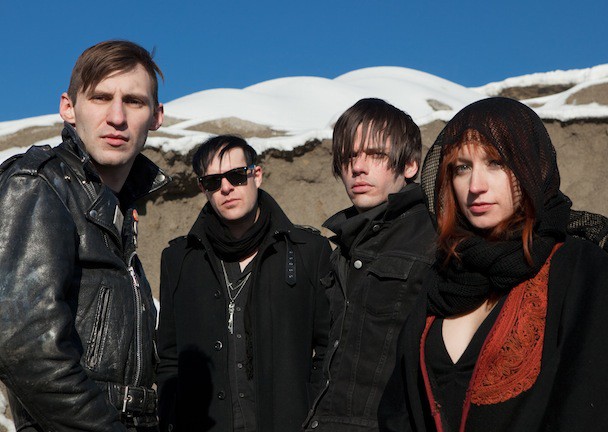Sean Ragon is living the dream, and he’s bringing it to Club Congress Wednesday night.
Even in the thick traffic from Vancouver to Portland, he still speaks with a genuine excitement, uncommon for musicians as busy on the road as he is.
“How could I be cynical?” Ragon said. “I’ve seen so much of the world just in the last few weeks, met so many people, we’ve played with so many amazing bands. I’m reinvigorated.”
Since Ragon’s first release under the moniker Cult of Youth in 2008, the band has grown considerably both in musical style and acclaim. According to Ragon, his band’s sound is derived from years on the punk circuit and playing bass in the similarly-lauded Love As Laughter.
“I found punk when I was 13, and it was a very important time,” Ragon said, who grew up in the midst of the Boston punk scene in the mid-90s. “I think that growing up around that just informs everything that you do, how you function and what you sound like.”
What does set Cult of Youth apart from the rest is the way in which Ragon and his bandmates imbue punk tendencies with the acoustic instrumentation of folk.
“There’s always been a folk element to this band,” he said. “It was almost 10 years before I released anything, before that I was just writing and recording these experiments in my room. The first show Cult of Youth was just me banging away at an acoustic guitar.”
In Cult of Youth, Ragon has been motivated by openness and progression. He describes his songwriting process as a medium, saying, “All I do is leave myself open to receiving transmissions, and then it’s up to me to shape the raw content that comes to me.”
Ragon comes across as a rare figure in music, where stories are told of artists struggling to create and cultivate their sound. Instead, Ragon seems content to take his music as it comes.
“To a certain extent I think analyzing one’s work is like analyzing your subconscious, I try not to put too much thought into it,” he said. “The most important thing for me is just being a good editor. Like if a song isn’t particularly working for me, then fine, just scrap it and move on. I don’t take it personal, just stay open to the universe and the music as it happens.”
For Ragon, it’s not so much about making the music as it is about what he does with it. Unabashed in referring to Cult of Youth as “liberation music,” Ragon expressed excitement toward the cultural climate he’s working in today.
“When we started back in 2006, American culture was in a terrible place,” Ragon said. “But right now you’re finding the next generation is into cooler shit, more educated about music and what it takes to live this life and all the work involved. It’s like there’s finally a group of people that are on the same team here.”
That, more than anything, sums up Ragon’s sense of punk optimism that makes Cult of Youth’s music not only interesting but powerful. Even if it means sometimes getting stuck in traffic, Ragon’s passion means he’s in the right line of work.
“The purpose of art is to change things,” Ragon said. “Art is what people have when things get shitty, and that’s why it’s important to keep making it. I’m all too happy to contribute.”
Follow us on Twitter @wildcatarts









